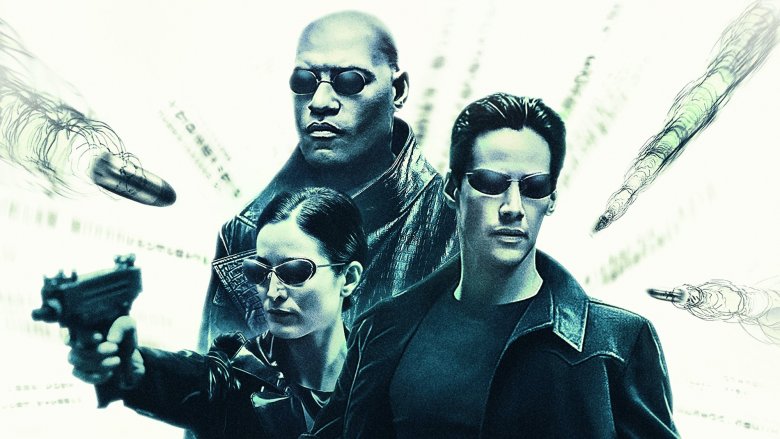


Yet we still have a lot to be thankful for in The Matrix trilogy. instead, they only regurgitated the same old tricks. Introduced any new concepts that could approach the first film's "bullet time" To veer toward the campy and self-referential - neither 'Reloaded' or 'Revolutions' To silly, maudlin climax of 'Revolutions.' The religious allusions also feelīelabored and incredibly ham-fisted. All that black leatherĪnd Euro-tech interior design starts to feel awfully tired by the time we get While the first film can still be appreciated for its prescient visionĪnd trail-blazing aesthetics, 'Reloaded' and 'Revolutions' both feel like aĬreative treading of water, or worse, parasitic cash-ins. Unfortunately, the passage of time has done nothing to improve 'The Matrix' Not since the 'Star Wars' prequels has a sure-fire sci-fi franchise suffered such a steep drop-off in cultural relevance. It is impossible now to look back on 'The Matrix' phenomenon and not see the kinks in the armor - namely, that 'Reloaded' and particularly 'Revolutions' disappointed not just the mainstream but also the franchise's massive legion of devoted followers. Indeed, 'Reloaded' opened huge, but the sequels seemed to quickly suffer from the law of diminishing returns. 'The Matrix Reloaded' and 'The Matrix Revolutions' would form a trilogy with the original 'Matrix,' and gargantuan box office seemed inevitable. And so the Wachowskis and Warner devised back-to-back sequels, shot over a period of year and to be released six months apart in the spring and fall of 2003. After the first film grossed over $500 million worldwide to become the sleeper sensation of 1999, it was inevitable that there would be follow-ups. Though the first 'Matrix' is undoubtedly a classic of its genre and a highly-influential blockbuster, its cross to bear is its two sequels. Much as 'Crouching Tiger, Hidden Dragon' introduced mainstream American audiences to the Chinese martial arts films, 'The Matrix' introduced us to the kinetic visuals of Japanimation, John Woo-inspired violence and the Cyberpunk ethos pioneered in the novels of William Gibson. As such, it played right into the hearts and minds of a generation. The idea that our world is an elaborate simulation meant to divert us from the knowledge that our bodies are being enslaved and harvested for energy by sentient computers is at once heady, ridiculous and supremely clever. 'The Matrix' depends on obvious religious parallels (Neo has been interpreted to be a spiritual stand-in for everyone from Jesus Christ to Buddha) to give it a familiar, universal feel and a philosophical bent.īut, like the outlet embedded in the back of Neo's head, the real power of 'The Matrix' is its ability to plug into the psyche of its target audience: young males. Nor did they simply rely on their extraordinary visual sense. It's clear now that the writing and directing team of Larry and Andy Wachowski were not content to just drape everyone in black and call it style. It's been nearly a decade since 'The Matrix' first ripped through the pop culture consciousness, and two sequels and over a billion dollars in worldwide box office later, the dust has finally settled long enough that it's possible to look back and better assess the film's place in the sci-fi cinematic pantheon. By the time it was over, audiences had a new benchmark for what constituted cool. Neo (Keanu Reeves) and Trinity (Carrie-Anne Moss), wearing black trench coats and black sunglasses, shoot their way through an office lobby leaving heroic amounts of shattered concrete and dead bodies. Bullets visibly ripple through the air, moving slowly enough for their intended targets to move out of the way. Characters run along walls before delivering a kick. The original film would be seminal in stretching the boundaries of computer-generated imagery - literally. While many late-1990s science fiction films such as 'Dark City' and 'Strange Days' embraced a similar grim, urban aesthetic, 'The Matrix' absorbed it, internalized it, and expanded upon it. At that one moment, everything about big-budget moviemaking changed. WarnerBros.She jumped in the air and the camera swirled around her.


 0 kommentar(er)
0 kommentar(er)
